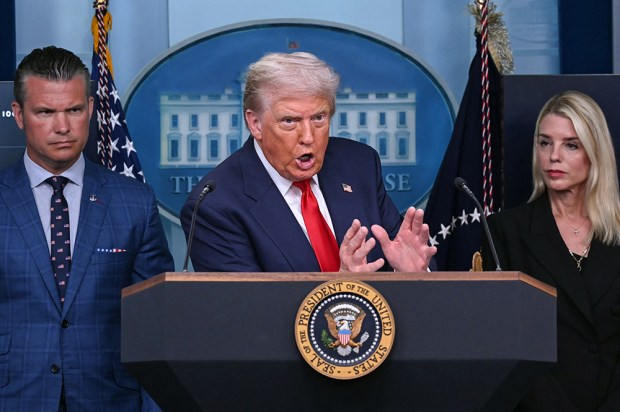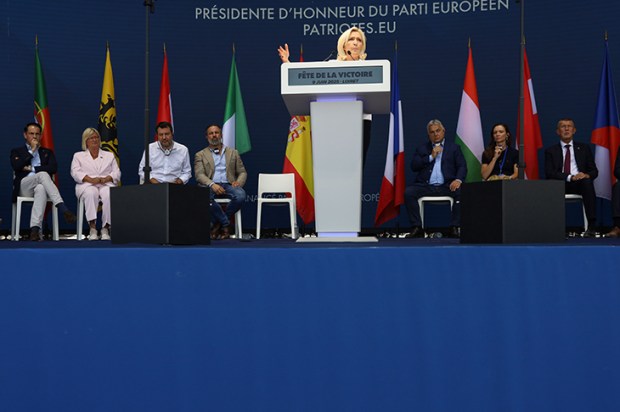This will be the last column I write about Kevin Rudd as Prime Minister. In over a quarter of century in politics, I never came across a more cynical and opportunistic leader. Never. From his exploitation of religion outside Canberra’s beautiful St John’s church to his abandonment of the emissions trading scheme having asserted climate change is the greatest moral issue of our time, to his volte face on border protection, to his epiphany on gay marriage, Rudd has become a political weather vane which spins as fast an aircraft’s propellor.
Which brings me to Syria. Syria, you might imagine, hasn’t much to do with Kevin Rudd. It’s a long way away; it is embroiled in an ugly civil war, which is itself a proxy war between Iran and the Sunni Arabs; and Australia has literally no capacity to change the situation on the ground in Damascus, Homs or Aleppo.
But there was our Prime Minister announcing he had to fly urgently to Canberra two weeks before election day to be briefed on the situation in Syria. Of course, he didn’t. That’s a complete nonsense. Here’s why.
No matter where you are in Australia or around the world, our diplomatic and intelligence agencies can brief you if you are the prime minister, the foreign minister or the defence minister. I was in Dubai in the late 1990s when president Habibie of Indonesia decided that he would change policy on East Timor and hold a referendum to decide its destiny. This was a huge moment in the history of Australian diplomacy. Briefing from DFAT, the Office of National Assessments and other relevant agencies was sent to me within hours. I didn’t need to return to Australia to find out what was happening. Canberra had technology enough to let me know.
And, of course, Rudd could have been briefed on Syria in Sydney or Brisbane all the more easily if he had wanted to be. Someone from his department could have flown to the Prime Minister with intelligence and diplomatic material. The Prime Minister could have spoken to senior officials over a secure telephone from Sydney or Brisbane or any other capital city in Australia.
But no, he and his Svengali Bruce Hawker thought they saw a political opportunity two weeks out from the election. Trailing in the polls, Rudd was flailing around looking for any opening. The allegations about the use of chemical weapons in Syria was seen as an opening. Instead of hand-to-hand combat with the opposition leader on the day Tony Abbott was launching his campaign, Rudd thought he could play the statesman and go to Canberra to be briefed on the ‘grave situation’ in Syria. Please! Er, and go there via Brisbane so he can record his participation in a cooking show!
Now, if a prime minister wanted a serious briefing on a major world issue, he would do it in private with the briefers: officers from his department, the Office of National Assessment and one or two people from the intelligence agencies. But instead he did it in front of his beloved friends — the television cameras. Sitting within camera shot was Bob Carr and a man with a moustache called Mike Kelly who is, apparently, the minister for defence materiel. Hang on, if this is ‘grave’ and hugely important, how is it that the Defence Minister — who’s not standing for re-election — couldn’t get there?
There were two other people in the picture: neither was the secretary of Prime Minister and Cabinet nor the head of the Office of National Assessments. And no security briefing on earth of any value would be held before a bank of television cameras.
The facts are simple. Syria is a civil war being fought between Sunni rebels backed by Qatar, Saudi Arabia and Turkey against the Assad regime heavily backed by Shia Iran. The Sunni rebels include elements of al-Qa’eda and allies of Egypt’s Muslim Brotherhood. On the other side, President Assad has a reputation for being a ‘brutal dictator’. An outright victory by the rebels will lead to anarchy as Sunni moderates, Alawytes, Christians and Salafists slug it out in a struggle for power. If Assad wins, that will be a huge strategic victory for his principle ally, Iran.
If the Americans and their allies were to intervene militarily, the consequences would be unpredictable. But in all probability the Iranians would respond. The already bloody war would become all the more violent. The risk of it spreading throughout the region would also rise. Lebanon, already perilously divided, could explode into a hideous conflict between the Shia and Iranian-backed Hezbollah and the Sunni. And all of this could lead to increased attacks on Israel. And then the Americans would be forced to pour more military resources into the region — again.
This is how great and bloody wars throughout history have spread. All this is speculative. I’m not sure this would happen, but I am sure it could.
There’s only one option for the West which passes the test of wisdom: to work on a power-sharing deal which allows all sides to live in security. A good-versus-evil dichotomy won’t work. Sending in a hideous assault of Cruise missiles, as President Clinton did in Iraq in 1998, would do nothing more than kill.
And would the Security Council of the UN agree to American intervention? Of course not. The Russians have made it crystal clear that they won’t agree to authorise American and Western intervention.
Which brings me back to Kevin Rudd. Australia may be on the UN Security Council, but our presence there won’t influence a Russian and Chinese veto: it would happen anyway. Australia has no strategic reach in Syria. We’re not a player. When Bob Carr recently told a fellow foreign minister about his humanitarian plan for Syria, the minister said: ‘Oh, the Belgian Plan!’
The Syria stunt may have been one of Kevin Rudd’s last. It was also one of his most undignified and unconvincing. It was not the behaviour of a grown-up.
Got something to add? Join the discussion and comment below.
Alexander Downer was foreign minister from 1996 to 2007.
You might disagree with half of it, but you’ll enjoy reading all of it. Try your first month for free, then just $2 a week for the remainder of your first year.













